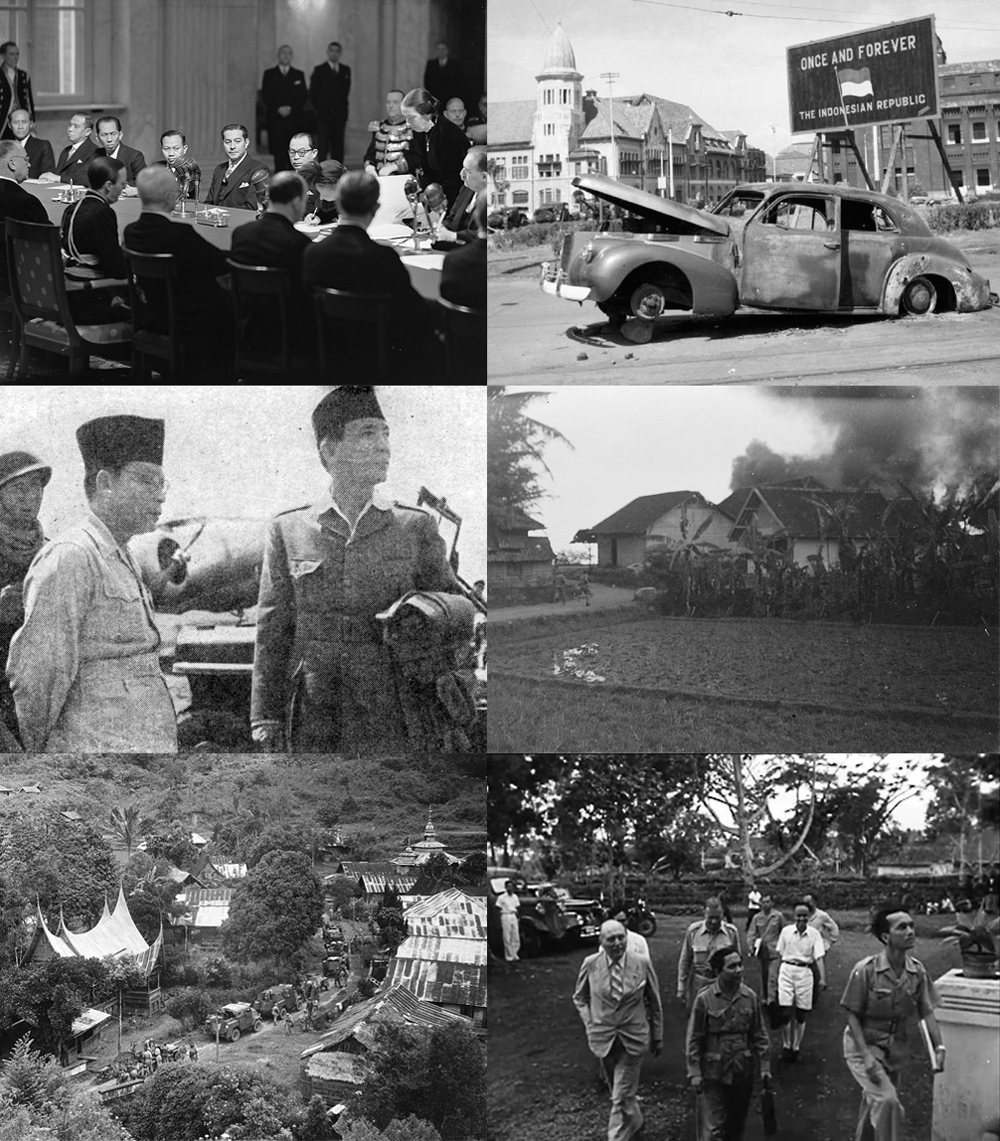|
Toko (shop)
A ''toko'' (Indonesian for shop) is a kind of retail shop in Indonesia and the Netherlands. The term is of Indonesian origin and probably from the Chinese Hokkien loanword to refer a shop. In Indonesia, the term ''toko'' is used a generic name for any kind of established shop or store. For example, in Indonesia, ''toko roti'' means a bakery while a ''toko kelontong'' sells daily necessities. In the Netherlands, the meaning has shifted more specifically to refer to Asian shops and takeaway restaurants, which sells mainly Asian food products of which the owners are generally Indo-European, Native Indonesian, Surinamese, Chinese or Vietnamese. History ''Tokos'' as a place of commerce emerged in present-day Indonesia during the Dutch East Indies era, where many shophouse (''rumah toko'' in Indonesian) ran by local Chinese seller in major cities such as Batavia. Tokos have become a common type of shop in Dutch cities since the repatriation of Dutch colonial expats and Indo-Europe ... [...More Info...] [...Related Items...] OR: [Wikipedia] [Google] [Baidu] |
Commerce
Commerce is the large-scale organized system of activities, functions, procedures and institutions directly and indirectly related to the exchange (buying and selling) of goods and services among two or more parties within local, regional, national or international economies. More specifically, commerce is not business, but rather the part of business which facilitates the movement and distribution of finished or unfinished but valuable goods and services from the producers to the end consumers on a large scale, as opposed to the sourcing of raw materials and manufacturing of those goods. Commerce is subtly different from trade as well, which is the final transaction, exchange or transfer of finished goods and services between a seller and an end consumer. Commerce not only includes trade as defined above, but also a series of transactions that happen between the producer and the seller with the help of the auxiliary services and means which facilitate such trade. These auxiliary ... [...More Info...] [...Related Items...] OR: [Wikipedia] [Google] [Baidu] |
Food Retailers
Food is any substance consumed by an organism for nutritional support. Food is usually of plant, animal, or fungal origin, and contains essential nutrients, such as carbohydrates, fats, proteins, vitamins, or minerals. The substance is ingested by an organism and assimilated by the organism's cells to provide energy, maintain life, or stimulate growth. Different species of animals have different feeding behaviours that satisfy the needs of their unique metabolisms, often evolved to fill a specific ecological niche within specific geographical contexts. Omnivorous humans are highly adaptable and have adapted to obtain food in many different ecosystems. The majority of the food energy required is supplied by the industrial food industry, which produces food with intensive agriculture and distributes it through complex food processing and food distribution systems. This system of conventional agriculture relies heavily on fossil fuels, which means that the food and agricultural ... [...More Info...] [...Related Items...] OR: [Wikipedia] [Google] [Baidu] |
Sari-sari Store
A sari-sari store, anglicized as neighborhood sundry store, is a convenience store found in the Philippines. The word ''sari-sari'' is Tagalog meaning "variety" or "sundry". Such stores occupy an important economic and social location in a Filipino community and are ubiquitous in neighborhoods and along streets. Sari-sari stores tend to be family-run and privately owned operating within the shopkeeper's residence. Commodities are displayed in a large screen-covered or metal-barred window in front of the shop. Candies in recycled jars, canned goods and cigarettes are displayed while cooking oil, salt and sugar are stored at the back of the shop. Prepaid mobile phone credits are provided. The sari-sari store operates with a small revolving fund, and it generally does not offer perishable goods requiring refrigeration. The few that do have refrigerators carry soft drinks, beers, and bottled water. Economic value Sari-sari stores are an integral part of the ecosystem of society ... [...More Info...] [...Related Items...] OR: [Wikipedia] [Google] [Baidu] |
Warung
A warung ( old spelling: waroeng or warong) is a type of small family-owned business — a small retail, eatery or café — in Indonesia (and to a lesser extent, Malaysia and Suriname). A ''warung'' is an essential part of daily life in Indonesia. In the passage of time, the term ''warung'' has slightly shifted — especially among foreign visitors, expatriates, and people abroad — to refer more specifically to a modest Indonesian eatery or a place that sells Indonesian retail things (mostly groceries or foodstuff). But for the majority of Indonesians, the meaning is still a small, neighborhood convenience shop, often a front room in a family's home. There are establishments on the touristy island of Bali and elsewhere that attach the term ''warung'' in their business to indicate their Indonesian nature. Traditionally, ''warung'' is indeed a family-owned business, run by the family members, mostly by women. Traditional warungs are made from wooden, bamboo or thatched m ... [...More Info...] [...Related Items...] OR: [Wikipedia] [Google] [Baidu] |
Asian Supermarket
In the West or non-Asian countries, an Asian supermarket largely describes a category of grocery stores that focuses and stocks items and products imported from countries located in the Far East (e.g. East, Southeast and South Asia). These stores go further than a typical quintessential supermarket in that they sell general merchandise, goods, and services related to specific Asian countries of origin, immigrant communities or the ethnic enclave that the store may be located in. They would also often tend to diversify by carrying products from other fellow Asian countries; Japanese supermarkets would carry some Chinese, Indonesian, Korean and Singaporean products; Korean supermarkets carry some Chinese and Japanese products; Taiwanese supermarkets carry Chinese, Korean, Japanese, Thai, Vietnamese products, and so on. Overview Asian supermarkets carry items and ingredients generally well-suited for Asian cuisines and simply not found or considerably more expensive in most Weste ... [...More Info...] [...Related Items...] OR: [Wikipedia] [Google] [Baidu] |
Encyclopedia
An encyclopedia (American English) or encyclopædia (British English) is a reference work or compendium providing summaries of knowledge either general or special to a particular field or discipline. Encyclopedias are divided into articles or entries that are arranged alphabetically by article name or by thematic categories, or else are hyperlinked and searchable. Encyclopedia entries are longer and more detailed than those in most dictionaries. Generally speaking, encyclopedia articles focus on '' factual information'' concerning the subject named in the article's title; this is unlike dictionary entries, which focus on linguistic information about words, such as their etymology, meaning, pronunciation, use, and grammatical forms.Béjoint, Henri (2000)''Modern Lexicography'', pp. 30–31. Oxford University Press. Encyclopedias have existed for around 2,000 years and have evolved considerably during that time as regards language (written in a major international or a verna ... [...More Info...] [...Related Items...] OR: [Wikipedia] [Google] [Baidu] |
Tokopedia
PT Tokopedia is an Indonesian e-commerce company. Tokopedia is a subsidiary of a new holding company called GoTo, following a merger with Gojek on 17 May 2021. It is one of the most visited e-commerce platforms in Indonesia. Tokopedia is one of Indonesia's unicorn companies, alongside Bukalapak, Gojek, OVO, and Traveloka. As of December 2020, Tokopedia claims to have more than 350 million product listings and 42 digital products, and serves over 100 million monthly active users as well as over 9.7 million merchants on its platform. History William Tanuwijaya and Leontinus Alpha Edison came up with the idea for Tokopedia in 2007. While reflecting on his childhood experience, Tanuwijaya realized that access to products such as books differed between small towns and big cities, and that technology could provide better access to products. The duo launched Tokopedia two years later with starting capital from an acquaintance. Toko is Indonesian for "shop", and is the first half o ... [...More Info...] [...Related Items...] OR: [Wikipedia] [Google] [Baidu] |
Dutch Language
Dutch ( ) is a West Germanic language spoken by about 25 million people as a first language and 5 million as a second language. It is the third most widely spoken Germanic language, after its close relatives German and English. ''Afrikaans'' is a separate but somewhat mutually intelligible daughter languageAfrikaans is a daughter language of Dutch; see , , , , , . Afrikaans was historically called Cape Dutch; see , , , , , . Afrikaans is rooted in 17th-century dialects of Dutch; see , , , . Afrikaans is variously described as a creole, a partially creolised language, or a deviant variety of Dutch; see . spoken, to some degree, by at least 16 million people, mainly in South Africa and Namibia, evolving from the Cape Dutch dialects of Southern Africa. The dialects used in Belgium (including Flemish) and in Suriname, meanwhile, are all guided by the Dutch Language Union. In Europe, most of the population of the Netherlands (where it is the only official language spoken country ... [...More Info...] [...Related Items...] OR: [Wikipedia] [Google] [Baidu] |
Indonesian National Revolution
The Indonesian National Revolution, or the Indonesian War of Independence, was an armed conflict and diplomatic struggle between the Republic of Indonesia and the Dutch Empire and an internal social revolution during Aftermath of WWII, postwar and Dutch East Indies#World War II and independence, postcolonial Indonesia. It took place between Indonesian Declaration of Independence, Indonesia's declaration of independence in 1945 and the Netherlands' Dutch–Indonesian Round Table Conference, transfer of sovereignty over the Dutch East Indies to the Republic of the United States of Indonesia at the end of 1949. The four-year struggle involved sporadic but bloody armed conflict, internal Indonesian political and communal upheavals, and two major international diplomatic interventions. Dutch military forces (and, for a while, the forces of the World War II Allies, World War II allies) were able to control the major towns, cities and industrial assets in Republican heartlands on Ja ... [...More Info...] [...Related Items...] OR: [Wikipedia] [Google] [Baidu] |
Batavia, Dutch East Indies
Batavia was the capital of the Dutch East Indies. The area corresponds to present-day Jakarta, Indonesia. Batavia can refer to the city proper or its suburbs and hinterland, the Ommelanden, which included the much-larger area of the Residency of Batavia in the present-day Indonesian provinces of Jakarta, Banten and West Java. The founding of Batavia by the Dutch in 1619, on the site of the ruins of Jayakarta, led to the establishment of a Dutch colony; Batavia became the center of the Dutch East India Company's trading network in Asia. Monopolies on local produce were augmented by non-indigenous cash crops. To safeguard their commercial interests, the company and the colonial administration absorbed surrounding territory. Batavia is on the north coast of Java, in a sheltered bay, on a land of marshland and hills crisscrossed with canals. The city had two centers: Oud Batavia (the oldest part of the city) and the relatively-newer city, on higher ground to the south. It was ... [...More Info...] [...Related Items...] OR: [Wikipedia] [Google] [Baidu] |
Shophouse
A shophouse is a building type serving both as a residence and a commercial business. It is defined in dictionary as a building type found in Southeast Asia that is "a shop opening on to the pavement and also used as the owner's residence", and became a commonly used term since the 1950s. Variations of the shophouse may also be found in other parts of the world; in Southern China, Hong Kong, and Macau, it is found in a building type known as ''Tong lau'', and in towns and cities in Sri Lanka. They stand in a terraced house configuration, often fronted with arcades or colonnades, which present a unique townscape in Southeast Asia, Sri Lanka, and South China. Design and features * Site and plan: Shophouses were a convenient design for urban settlers, providing both a residence and small business venue. Shophouses were often designed to be narrow and deep so that many businesses can be accommodated along a street. Each building's footprint was narrow in width and long in dept ... [...More Info...] [...Related Items...] OR: [Wikipedia] [Google] [Baidu] |






